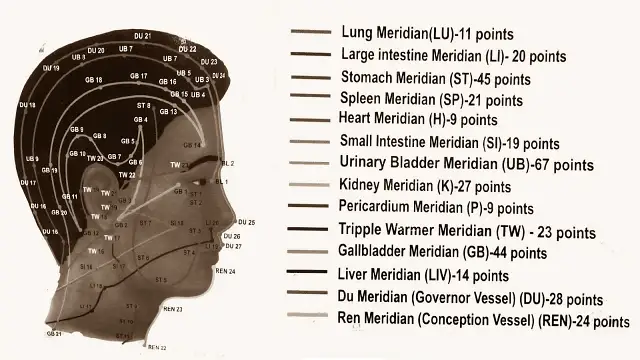Acupuncture is a healing practice that focuses on energy points in the body. Among these, acupuncture alarm points are the most significant. They are special spots linked to the body’s major organ systems. Understanding these points can enhance treatment effectiveness.
What Are Acupuncture Alarm Points?
Each of the 12 major meridian systems has a unique acupuncture point, often called a Mu point. This name comes from the organ associated with the meridian. Most of these points are found on the chest and abdomen, while two are located at the tips of the eleventh and twelfth ribs. The eleventh rib point connects to the spleen meridian, and the twelfth rib point relates to the kidney meridian.
When discussing meridians, the organ name is capitalized to differentiate it from the actual organ. For example, the Lung meridian is not the same as the lungs themselves. The alarm points are situated directly above the organs they represent, making them powerful tools in acupuncture treatment.
The Importance of Understanding Meridian Relationships
To effectively use acupuncture alarm points, practitioners must grasp how meridian systems interact with various body functions. For instance, the Lung meridian influences skin health, while the Kidney meridian affects muscles and ligaments. Emotions like grief, worry, and anger are also tied to specific meridian systems.
Stimulating an alarm point can lead to significant changes in the related organ system. This stimulation can be done through manual pressure, electrical methods, or traditional acupuncture needles.
Holistic Approaches to Acupuncture Alarm Points
Some holistic acupuncture systems, like Koryo Sooji Chim (Korean Hand Acupuncture), also utilize these alarm points. In these systems, the major meridian points are represented on smaller body parts, such as the hand, scalp, or ear. This allows for a more accessible way to tap into the benefits of acupuncture.
Recognizing Alarm Points
Acupuncture alarm points can sometimes show signs of redness or tenderness. These symptoms may indicate potential issues with the associated organ systems, hence the name “alarm points.” In traditional Chinese medicine, examining these points is a standard diagnostic procedure.
Conclusion
Acupuncture alarm points are vital in understanding how energy flows through the body. By recognizing and stimulating these points, practitioners can address various health issues effectively. Whether through traditional acupuncture or holistic methods, these powerful points offer a pathway to better health.

